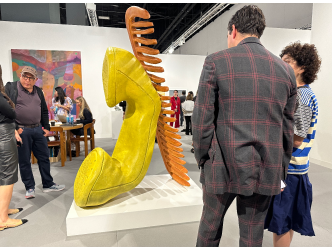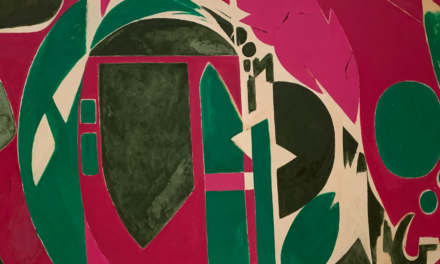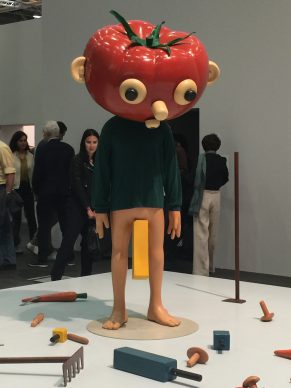Human obsession
Dance is a human obsession that social media has taken up in extraordinary ways: It’s one of the more heartening trends that spread on the new platforms. Young and old, professional and amateur—across the world, many anonymous users, and some celebrities too, use dance to express their identity and their will to live. Because dance both impacts and reflects our societies.
Manifesto exhibition
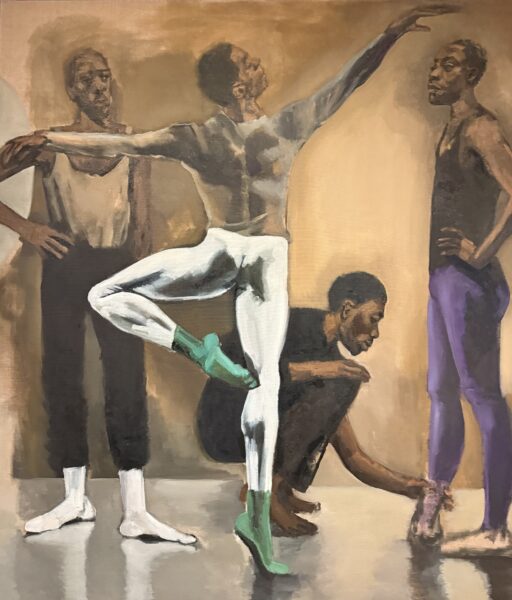
Lynette Yiadom Boakye
In New York, the Whitney Museum is hosting a manifesto exhibition, “Edges of Ailey,” through Feb. 9 that examines these social dimensions of the form, albeit from a different angle.
It is certainly the most striking museum event of the moment in New York. It takes as its starting point the story of Alvin Ailey (1931-1989), a Black American dancer born in Segregation-era Texas.
Dances of the Caribbean
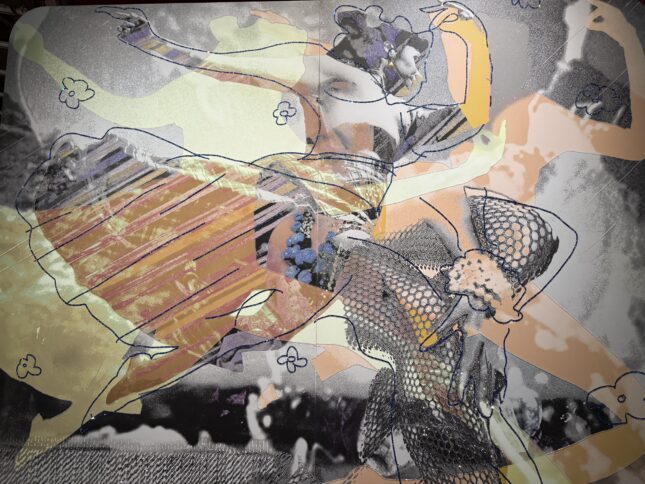
Mickalene Thomas
In 1958, he founded a dance company in New York that drew on the dances of the Caribbean and the spirit of gospel as well as contemporary choreography. Through his invention of new gestures, Ailey created a small revolution.
Adrienne Edwards
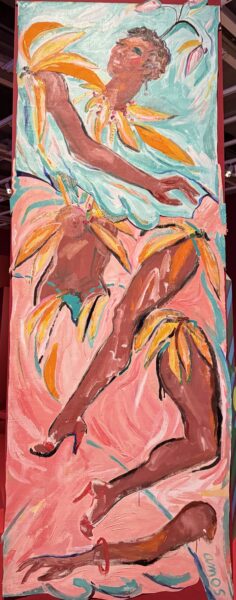
Emma Amos
For the exhibition’s curator, Adrienne Edwards, “Alvin Ailey is the greatest artist of our time. He should be thought of on the same level as Warhol or Jasper Johns in that he created conversations across different disciplines.” The social situation of the time left little room for African Americans. As shocking as it may seem now, Edwards notes that “apart from the New Dance Group, there was no space where Black and white dancers could dance together.”
A frieze of 18 monumental videos
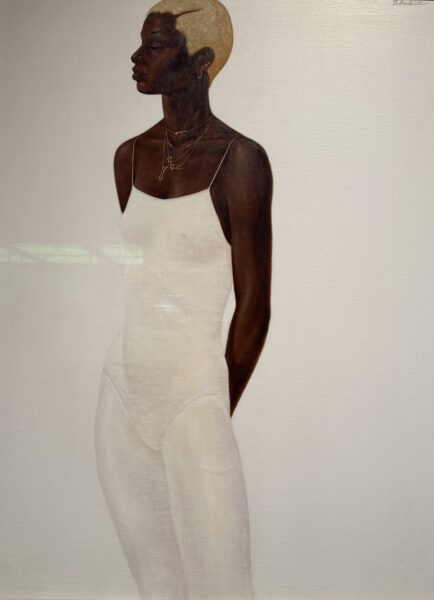
Barkley Hendricks
The aesthetic impact of the Whitney exhibition, which spans an entire floor, is immediate. Overhanging the gallery space is a wide frieze of 18 monumental video screens that immerse the viewer in Ailey’s ballets. He created no fewer than 79 works that would go on to tour the world. But the exhibition doesn’t simply trace the choreographer’s life and work.
Black experience
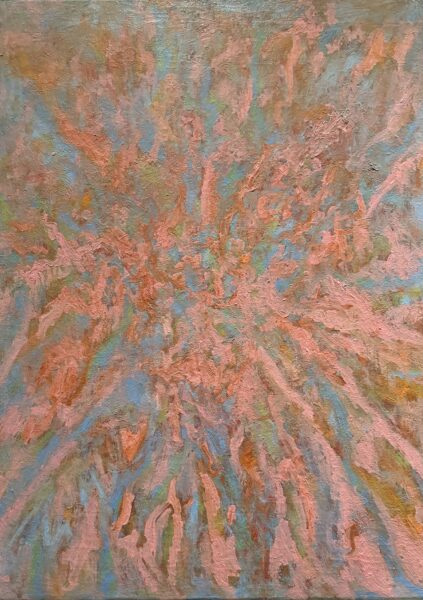
Romare Bearden
Edwards here attempts to give shape to what Ailey himself called the “Black experience.”
To appreciate is to support.
To support is to donate.
Support JB Reports by becoming a sustaining Patron with a recurring or a spontaneous donation.
Scott Rothkopf
Scott Rothkopf, the museum’s new director, explains: “It features artists Ailey knew, those who followed in his footsteps and others who are in dialogue with his work in some way.” This is where the experience becomes more complex, as it is not immediately clear why these other artists were included. The exhibition catalog focuses mainly on Ailey and does not elaborate a curatorial rationale for the other artists it features.
Rashid Johnson
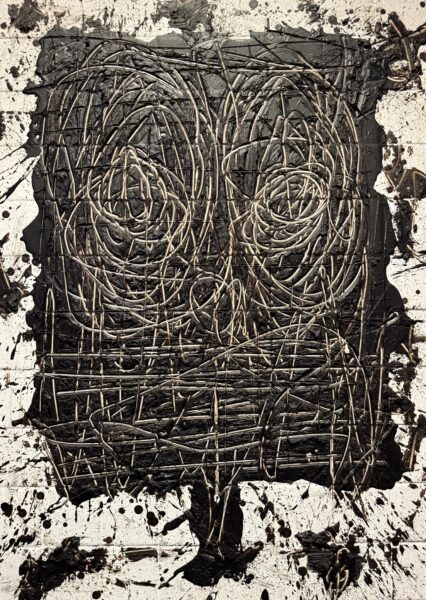
Rashid Johnson
Take for example a piece by contemporary art star Rashid Johnson (b. 1977), who will be the subject of a 2025 retrospective at the Guggenheim Museum in New York (See here an interview of Rashid Johnson). It is a work from his “Anxious Men” series (2016), a painting drawn in black soap from which emerges a schematic face. As explained in the wall text: Johnson “channels the interiority of the Black man.”
Purvis Young
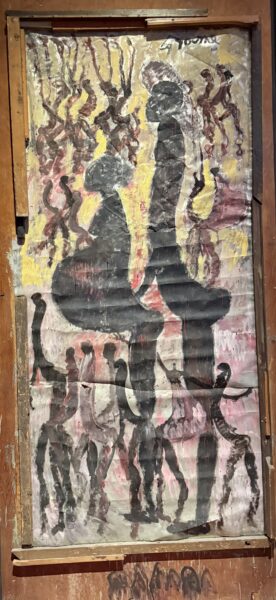
Purvis Young
Same goes for another great talent featured in the show, the still-underrecognized Miami painter Purvis Young (1943-2010), whose works echo the “brut” works of Jean Dubuffet. (See the report about Art Basel Miami where I discovered Purvis Young’s work in an hotel lobby). It’s “the autodidactic nature of his work that connects Young and Ailey” Rothkopf explains, adding: “Like in a poem, the curator gives herself license, an authorial gesture.”
Dramatic backdrop
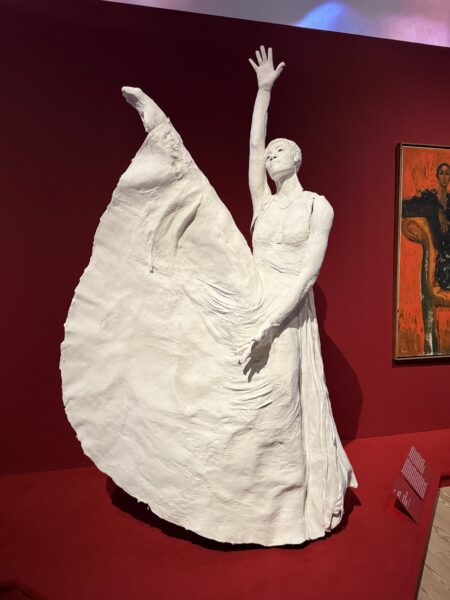
Karon Davis
Set against a dramatic backdrop of walls painted red, the exhibition sets the stage for the work of major African American artists such as Jean-Michel Basquiat, Kara Walker and David Hammons. Red because Ailey said his dance was rooted in “blood memories.”
Through Feb. 9. https://whitney.org/
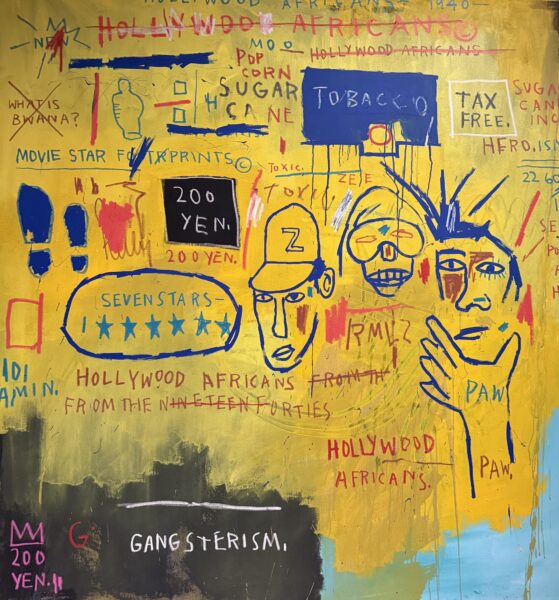
Jean-Michel Basquiat
Support independent news on art.
Your contribution : Make a monthly commitment to support JB Reports or a one off contribution as and when you feel like it. Choose the option that suits you best.
Need to cancel a recurring donation? Please go here.
The donation is considered to be a subscription for a fee set by the donor and for a duration also set by the donor.


